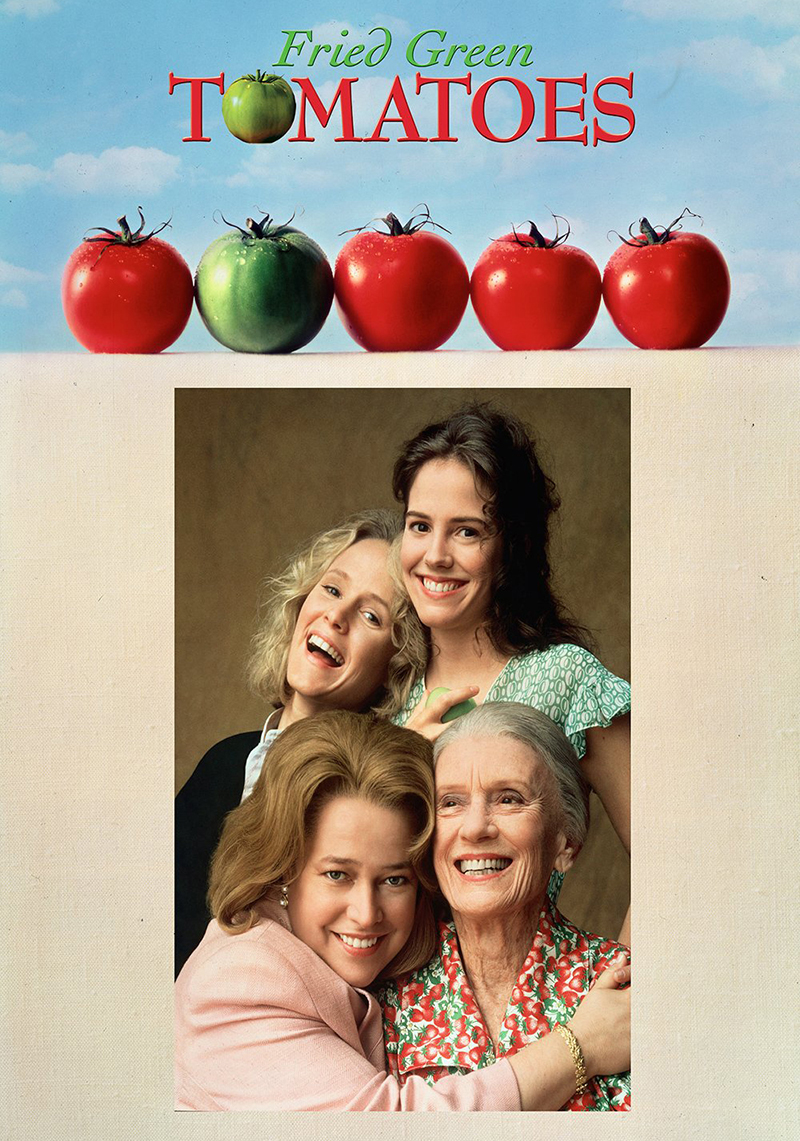As of April 2, the movie Fried Green Tomatoes will be leaving Netflix’s collection. Released in 1991, it is an adaptation of Fannie Flagg’s novel Fried Green Tomatoes at the Whistle Stop Cafe. It follows the story of Evelyn Couch (Kathy Bates) as she befriends Ninny Threadgoode, an elderly woman living in a nursing home, portrayed by Jessica Tandy.
As a friendship is formed between the two, Ninny tells Evelyn about growing up in Whistle Stop, with much of that story centring on the relationship between two women who ran the Whistle Stop Cafe. Those women were Idgie Threadgoode (Mary Stuart Masterson), whose tomboyish attitude clashes with the 1930s southern town’s sensibilities, and Ruth Jamison (Mary-Louise Parker), a classic southern lady. As Evelyn becomes more engrossed with Ninny’s tale of love, murder, and cannibalism, she finds her own life transformed by Idgie and Ruth’s influence.
This is quite a celebrated film, having won six awards ranging from the USC Scripter Award in 1992 for Flagg and Carol Sobieski’s screenplay to a GLAAD Media Award for Outstanding Film, also in 1992. Most of the nominations are accredited to either Tandy, who received an Oscar Nomination for Best Actress in a Supporting Role, or Bates, who was nominated in the BAFTA Best Supporting Actress category.
This film is about women and the complex relationships that form between them. In 2020, there are still not that many movies focused primarily on women and their relationships outside of chick-flicks or romance movies — even in those cases it’s often how female characters relate to the men that they are dating, trying to date, or trying not to date. While there are still men in the movie — Evelyn is in a somewhat struggling marriage and Ruth at one point has an abusive husband — the focus of the movie is almost entirely on the friendships that are formed between Idgie and Ruth, and later between Ninny and Evelyn. This is breathtakingly refreshing, as every major female character can easily be identified with, has her own unique personality, and is genuinely likeable.
One way you may have seen Fried Green Tomatoes discussed is that it is a film about lesbians. While the sexualities of Idgie and Ruth are never stated, their relationship is implied to be that of romantic love. It’s not a bad reading of the film. However, as one of the characters in that relationship dies it does subject this film to criticism that it may use the “Bury Your Gays” trope. No film exists in a vacuum, and the sad fact is that a lot of films about queer characters end up being tragedies. It’s doubtful that it was intended as anything more than a character dying, but with the background that gay characters die more often than not in film, it cannot be ignored.
Overall, Fried Green Tomatoes offers a gripping story, likeable characters, and stand-out performances. It is interesting to compare it to media trends of today and see how we’ve progressed in telling stories about LGBTQ+ characters, and where the mainstream film industry still needs to do better.


